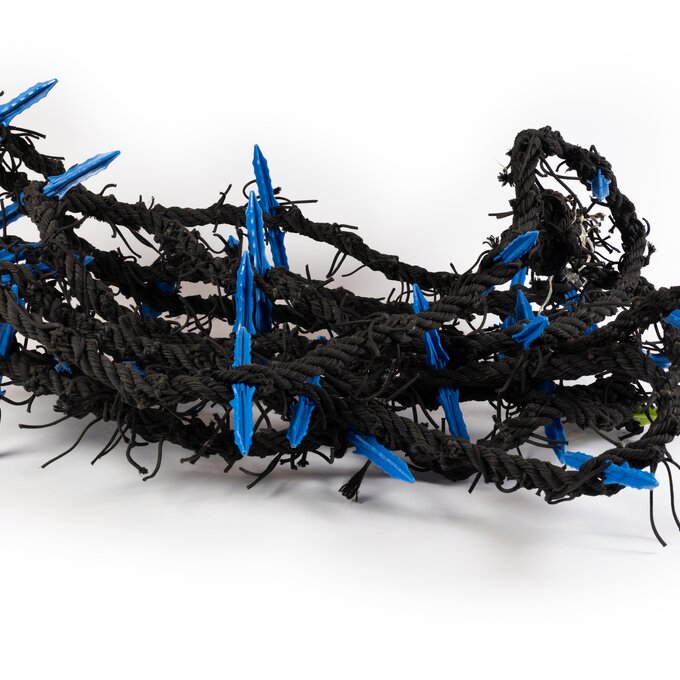Hof der dingen - Mussel farming rope

“Mussels are a national favourite in Belgium – perhaps because they go so well with fries? Personally, I like them best when they’re still a bit saignant – just slightly undercooked.”
Marine biologist Stijn Van Hoestenberghe has always been fascinated by the sea. So when plans arose to start mussel farming off the Belgian coast, he was first in line to sign up for the task.
The first mussels from the Belgian North Sea came from the offshore mussel farm of Colruyt Group and partners, where Stijn serves as an operational manager. The mussels are cultivated about three kilometres off our coastline. “We cover about one square kilometre, which is next to nothing in such a vast sea.”, he explains. µ
“The North Sea had always proven to be too challenging for mussel farming but thanks to a bit of human ingenuity and increased knowledge about mussel farming and the North Sea, it’s proven to be possible after all”, he says.
Now – mussel farming does sound a bit complex, no?
“It’s honestly quite simple. Mussel farming ropes utilise a system where ropes are suspended in the water, either from rafts or longlines, and mussels are grown on these ropes. You have one long main rope with several buoys attached to the top. From that thick rope, we hang smaller, thinner ropes — and mussels naturally settle on them. That’s because there’s mussel seed - also called spat- floating in the sea.
If we hang the mussel ropes in at the right moment, the mussels attach themselves naturally. The mussels are harvested by removing the ropes and detaching the mussels. We don’t need to provide any materials or nutrients – the mussels get everything they need straight from the sea. The only thing we need to do is provide the mussel ropes.
Mussels are the most sustainable animal protein there is — no other animal protein requires less CO₂ or energy to produce — and with their omega-3s, they’re healthy, too.”